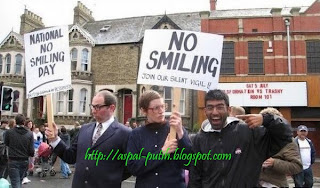1. Somalia.
This is a list on the top 10 most dangerous places in the world – these are all places you might consider not visiting when planning your next holiday. Some of the items may be a little controversial, but you are, of course, free to ignore our advice and go anyway!
2. Iraq.
Military action, collateral damage, insurgency and suicide bombings are daily occurrences in the country. Security experts say unstable areas include Baghdad and stretch from Tikrit in the north to Hillah in the south and from Mandali in the east to Ramadi in the west.
3.Afganistan.
Even though the ruling Taliban regime was officially ousted in Afghanistan in 2001, attacks from those still loyal to it and to al Qaeda continue. Military personnel and civilians are killed by improvised explosive devices daily.
4. Haiti.
Sharing the Caribbean island of Hispaniola with top vacation destination Dominican Republic, Haiti, the western hemisphere's poorest country, is plagued by civil unrest, police corruption and readily available firearms.
5. Pakistan.
The country, which borders Afghanistan, suffers from ongoing geopolitical turmoil. Bomb attacks and rioting between Shia and Sunni Muslim communities are a threat. In December 2007, opposition leader Benazir Bhutto was assassinated during a suicide bombing after months of strife over delayed elections.
6. Sudan.
Despite a peace agreement in 2005, areas of extreme danger due to battles between government troops and militias and local insurgent groups dot the country. Areas to avoid completely include the western region of Darfur, Ethiopian and Eritrean border regions and all of southern Sudan.
7. Kongo.
A civil war that formally ended in 2003 still affects the country. As Rwandan and Ugandan troops pulled out of DRC towards the end of the war, rival militias have been fighting each other to fill the power vacuum this created. Crime is rampant in major cities and security conditions can fluctuate drastically even within minor distances.
8. Libanon.
Culminating in the 2005 assassination of Prime Minister Rafik al-Hariri, Lebanon is split by pro- and anti-Syrian forces vying for control of the government. Other risks include military battles in the south with neighboring Israel and civil unrest.
9. Zimbabwe.
Anti-western sentiment prominently expressed by officials, out-of-control inflation and oppression employed by the government to silence dissenting voices are common in Zimbabwe.
10. Palestina.
The region is caught in a brutal tug-of-war between pro-Fatah and pro-Hamas factions. Political and military battles with Israel, especially in the Gaza Strip, have made the security situation in this territory very unstable. Poverty and chronic violence add to the instability.






























































